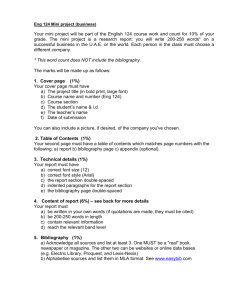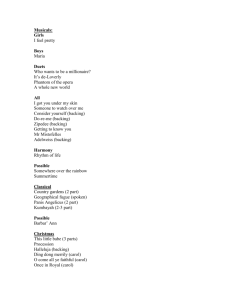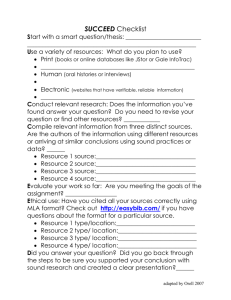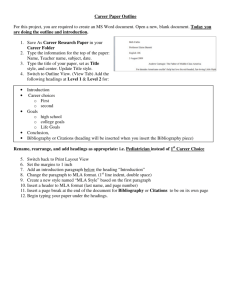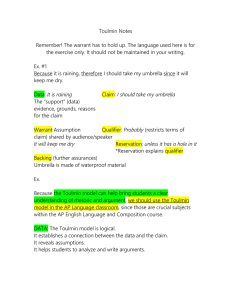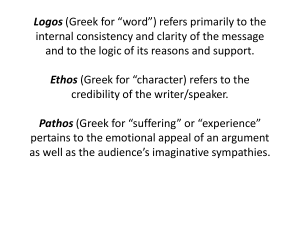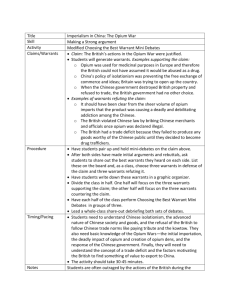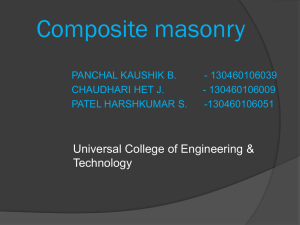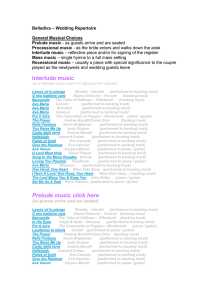Mini Research Project
advertisement
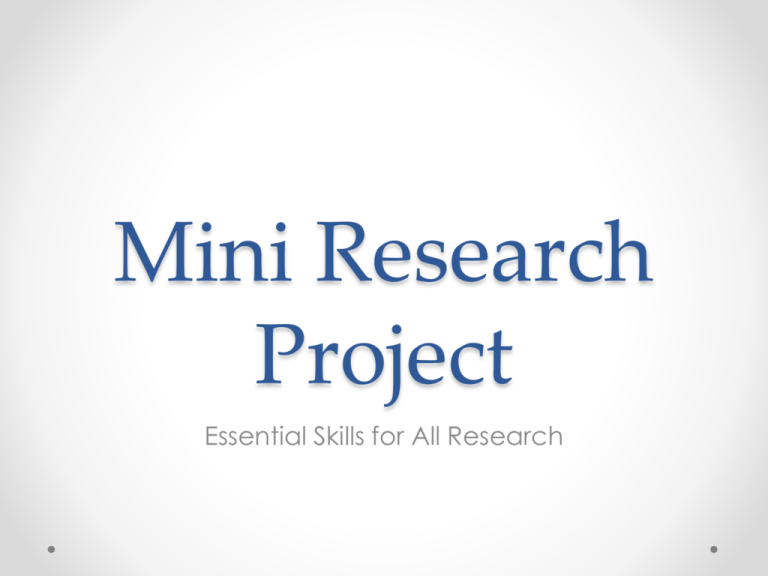
Mini Research Project Essential Skills for All Research Step 1: The topic • No matter what you research, you start with a topic in mind. o o o o Literature Medicine Marketing Entertainment • Then you have to research to narrow your focus o o o o Read criticism Conduct lap tests Conduct opinion polls Talk to others in the field • Then you develop a question- this question is what your research will answer o o o o What did Shakespeare want us to know about love in Romeo and Juliet? How will some medicine already approved help with this other sickness? What is the best market strategy for selling a new running shoe? How can I best sell my new mixtape to Dequann? Step 2: The question • Once you have your question, you research the answer to the question. • A research question is not a “yes/no” question. It is something that needs to be proven. • For this mini project your question is going to prove your opinion of your chosen subject. • You cannot develop a question without reading about the topic. Step 3: Finding sources • Just because it is on the internet does not make it true • Look for sources which are reliable: .org, .edu, .gov rather than .com • Google and other search engines are not sources. • Wikipedia is a great place to find sources, but not a reliable source. • On line data bases that are paid for can be more reliable than those just on the internet • Books still offer more reliability than many internet resources Bibliography • It is vital to know where you got your information so that you can give credit to the original author. • Failure to give credit to sources and claiming the work as your own is PLAGIARISM and is illegal. • Plagiarism can result in a zero on an assignment, losing credit for a class, expulsion from a school and being fired from your job (ask Dan Rather) • Easybib.com is an excellent source for creating a bibliography without having to think about it much. Step 4: Reading and taking notes • You have to read the material whether it is about literature or a report on the opinions of those who have heard your music or tried out your shoes; you have to read • Take notes on what you read • Summary notes: Read a passage and think for your self about the main idea and what supports that idea. Write that down. • Paraphrased notes: Read a passage and rewrite it in your own words (the best choice b/c you’re ready to put it in your paper. Step 5: Compiling your research • Once you have done your research, you have to see how what you have learned answers your question. • The answer becomes your CLAIM. Claim is also called the thesis of your paper. • The WARRANT AND BACKING of your paper is found in your research, the EVIDENCE. These are the details that will support your claim/your answer to the question. Step 6: Writing your research • Introduction: this paragraph gives an overview of your topic narrowing down to your claim as the last sentence in your first paragraph. • Formal research writing does not use the words I or YOU to refer to the writer or the reader. • Body: You must first decide how to present your warrant and backing: chronologically, order of importance (least to most or most to least), sequentially, etc. It all depends on the type research you are doing. Writing continued • The body paragraphs will begin with a topic sentence which will guide the paragraph. What statement of warrant or backing will support your claim. • Once you have made this statement, elaborate upon it. • What QUALIFICATIONS exist for the warrant, backing and claim? • What counterclaims must you consider in supporting your claim? Technical Aspects • • • • • • For English writing you must follow an MLA format Everything is double-spaced One inch margins all around Times New Roman 12 font Parenthetical citations Bibliography/work cited listing sources in MLA format (easybib.com) in alphabetical order

